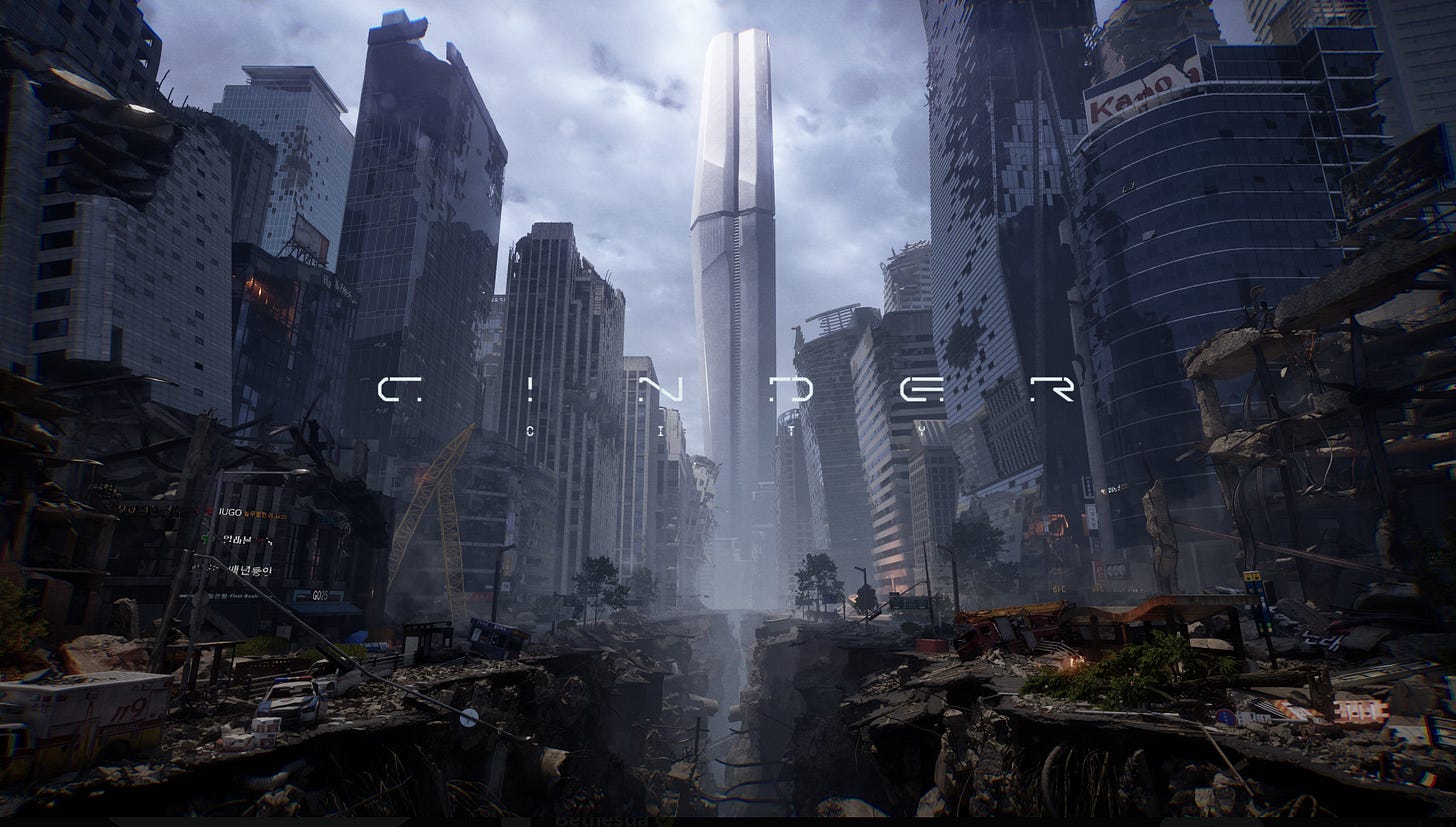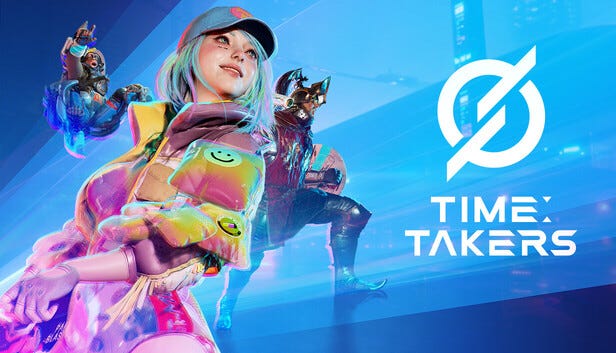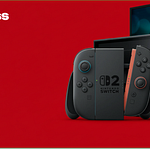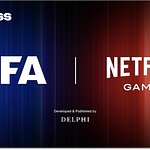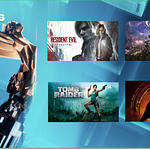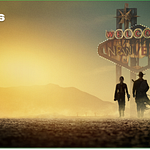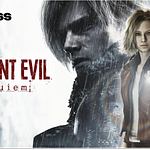Listen now on Apple, Spotify or YouTube
In This Edition
NCSoft’s Jeonghee Jin on…
- Its big new Gamecom reveals
- Tackling the shooter genre
- The popularity of Korean games
Sponsor Message
Green Man Gaming on Gaming for Good
Green Man Gaming is creating new revenue streams and discoverability options that will help businesses extend games’ lifecycle and grow their audience.
It recently revealed its Charity Bundles platform: a curated way for publishers to reach new audiences, generate incremental revenue, and support causes that matter. The platform offers transparent stock levels, instant key fulfilment, and regional pricing - all while raising funds for charities like SpecialEffect’s One Special Day. Get involved at: www.greenmangaming.com/company/charity-bundles.
Elsewhere, Green Man Gaming Distribution is a new service that helps studios boost discoverability by activating titles across 180+ vetted retailers, reaching over 100m gamers and delivering up to 20 - 30% more revenue compared to Steam-only sales.
“When we talked about shooters, the first thing everybody said is: it's a saturated market”
There were a lot of big titles shown during Opening Night Live at Gamescom, headlined by the next Call of Duty, Resident Evil and Black Myth.
Two titles that caught my eye were from NCSoft. The first is a post-apocalyptic MMO shooter set in a dystopian Korea called Cinder City. The other was a competitive team-based survival shooter called Time Takers.
NCSoft doesn’t really make shooters. The South Korean publisher is primarily known for its work with MMOs, namely Guild Wars, Aion, Lineage and Blade & Soul. Yet here it is branching out, and into one of the most competitive genres around: live service shooters.
“We haven’t really released a shooter title successfully in the past 30 years,” says Jeonghee Jin, CEO of NC America and COO of NCSoft West. Tthese are really ambitious projects for us.
“When working on these ONL trailers, we feel like we are getting ready for a blind date. We are ready to show ourselves, but we don't know how the other person will react. We are ready to get feedback.”
If you’ve been following The Game Business over the last few months, you’ll have seen plenty of conversations around the fate of games like XDefiant and Concord, which were big budget live service shooters that either failed to attract players, or couldn’t keep them beyond the initial launch. Instead, we’ve had numerous companies extol the wisdom of investing in niche concepts, avoiding hyper competitive live service genres, and being cautious around budgets.
But NCSoft has been almost doing the opposite. It’s spending money on studios (in both Korea and internationally), and targeting a mainstream, popular genre.
“We are at a point where we really want to jump up,” Jin explains. “The game industry everywhere has not been very active in investment and growing projects. There have been a lot of cancellations and layoffs for the past couple of years, and we were the same. We actually did a lot of restructuring efforts, especially last year. The company has gone through a lot of changes.
“But I believe this is also the exact time when we really have to work on investment. There is definite cautiousness internally. We are not just going aggressive. Unfortunately, we had project cancellations last year, but when these were happening, we also had to go and find other opportunities.
“The industry has been always cycling. If you think this is deep down in the cycle, that’s exactly when you have to find new opportunities. A lot of good teams are struggling, because there are no new funds or active investment. This is really a good time for somebody like us, who has to find good growth momentum once again, especially outside of Korea. We are being very careful about budget and what projects to grow and which ones to evaluate. But we want to show this ambition right now.”
Cinder City and Time Takers looked strong at ONL last night. Even so, it still feels like a considerable risk considering the competition.
“There is, of course, concern,” Jin admits. “When we talked about shooters internally, The first thing everybody said is ‘it's a saturated market’. It is competitive, but because of that, I think it’s worthwhile trying. People are always looking for new games.
“It’s also about confidence. When I try to find new projects, I talk to the developers and I am curious what they’re really trying to achieve. And for the projects we are working on right now, all the devs have a clear vision for what they’re trying to achieve, and have very clear goals for what they want to bring to the genre.
“Still, there is a possibility, of course, these will totally fail. Nobody really knows. We just have to admit that a good game can also brutally fail for very different reasons. But as long as I believe there is really good, clear vision, and the devs know what type of gameplay, what type of fun they want to create. And what innovations they want to bring. I really want to support them and just raise the success rate.”
“Even our audience of MMORPG players play some shooters. It’s always in their library. As a publisher, it is a natural ambition to offer more for our audience”
That’s ultimately Jin’s objective as a publisher.
“I’ve never touched game development, I’ve always been on the publishing side, the business side and the strategy side. What I and my team can do is just raise the success rate, even a little bit like 1% or 2%. I always tell my team to find a way to make this project appeal better. So, doing more focus group or beta tests. Getting feedback from the players is getting really important in a competitive market.”
Jin stresses that Cinder City and Time Takers are not copies of what else is out there. It’s really been about applying the company’s experience in MMORPGs to a new genre, and targeting its existing player base with something different.
“We really wanted to bring more diversity to our audience. And the first one was shooter. Not just because it’s a popular genre, but even our audience of MMORPG players play some shooters. It’s always in their library. As a publisher, it is a natural ambition to offer more for our audience. Even our fans of Lineage, or Aion, or Blade and Soul… I know they play shooter games. We want to show them these cool shooters we are making in our own style.”
Part of that style comes from NCSoft’s Korean heritage. Korean-made films, TV shows (such as Squid Game) and music is proving immensely popular with global audiences today. Could we see a rise in K-Games, too?
“There is something about Korean content, whether it's about creativity or unique story or the aesthetic, that really hook in a global audience. I think we also have those components as a Korean game developer. I am not sure how you describe those components precisely. If you ever played our MMORPGs, you’d tell they’re very different from most Western games.
“There are things that Korean developers are really good at, especially regarding MMO components, and multiplayer experiences, and character progressions. Also, the Korean setting. We wanted to create something we are very familiar with.”
I observed we’re also seeing Chinese and Japanese games growing in the West.
“Because of the popularity of global platform like YouTube, Netflix and Steam, those have made it easier to access any content coming from any country and any culture.”
“It’s this global trend,” Jin continues. “The audience, whether they’re game players, or movie watchers or music listeners, they are more ready to embrace different cultures and types of content.
“Because of the popularity of global platform like YouTube, Netflix and Steam, those have made it easier to access any content coming from any country and any culture. When we were young, we really didn’t have access. But now, things are more open and people can just choose whatever content they want, whether it’s German or Spanish or Korean or Japanese. The experience is richer and the appetite is also getting richer. That has definitely had an impact on the global content and entertainment business.”
Outside of Cinder City and Time Takers, NCSoft is showcasing numerous other projects at Gamescom. These include the new game Limit Zero Breakers, Blade & Soul Heroes, Aion 2 and a Guild Wars expansion. There was also strategy RPG Band of Heroes from Polish studio Virtual Alchemy.
It’s clear NCSoft is serious about growing in Europe and the US… but I’ve heard this all before. I’ve been at Gamescoms in previous NCSoft eras where Western growth was the ambition. What’s different this time?
“We are trying to be more agile. My mindset, and the team’s mindset, is probably a little similar to being a growing start-up. We also did a lot of restructuring for more than the past couple of years. So, the team I have is small. We are growing, but I’m trying not to grow too fast. We are focusing on finding good opportunities for the next couple of years, and finding good teams to work on a more long-term strategy.”
Jin isn’t finished investing. The seven projects at Gamescom don’t represent all the games NCSoft has in the pipeline. And the firm is open to working with new studios in new locations, and signing games in different genres.
With all this investment, you might expect the publisher to have considerable targets. But when I asked Jin what success looks like for her division, her expectations were more modest.
“Of course, we have to think about financials. But for me, every project comes with different goals. We don’t have to make $1bn or $100 million for a successful project. Every project we are working on is going to be a live service game, and the most important thing is to just have a good number of happy players. There is always going to be some angry and unsatisfied players. They’re going to exist. But they’re also going to tell us what to improve.
“Having a good number of happy players should be the first key metric. With that in place, the revenue piece is going to follow. And then you can have the virtuous cycle, where our revenue means we can really invest in creating new content.”
She concludes: “The profit could be low or high. You never know in a game business. It’s really hard to make a good forecast. I’ve worked [on] forecasting for new projects, and I was always thinking, ‘why am I doing this? All the numbers are garbage’. Once the game is launched, sometimes you make ten times more than you expected, and sometimes you make zero when you were expecting $100 million.
“So, you have to go step-by-step and getting feedback from the players. When it really hits a break-even point where we can reinvest in the game, then you have a success. Many live service games don’t even get to the point.”
That’s it for today’s Gamescom Newsletter and Show, sponsored by Keywords Studios and Green Man Gaming. We are now off to record a live version of our Show in Cologne, and we’ll be back here tomorrow with our reaction to the Gamescom news. Thank you for reading!




